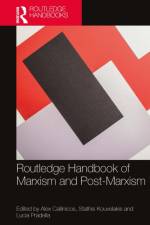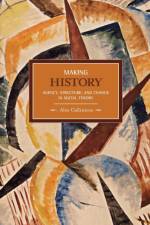av Alex Callinicos
737
In the past two decades, Marxism has enjoyed a revitalization as a research program and a growth in its audience. This renaissance is connected to the revival of anti-capitalist contestation since the Seattle protests in 1999 and the impact of the global economic and financial crisis in 2007-8. It intersects with the emergence of Post-Marxism since the 1980s represented by thinkers such as Jürgen Habermas, Chantal Mouffe, Ranajit Guha and Alain Badiou.This handbook explores the development of Marxism and Post-Marxism, setting them in dialogue against a truly global backdrop. Transcending the disciplinary boundaries between philosophy, economics, politics and history, an international range of expert contributors guide the reader through the main varieties and preoccupations of Marxism and Post-Marxism. Through a series of framing and illustrative essays, readers will explore these traditions, starting from Marx and Engels themselves, through the thinkers of the Second and Third Internationals (Rosa Luxemburg, Lenin and Trotsky, among others), the Tricontinental, and Subaltern and Post-Colonial Studies, to more contemporary figures such as Huey Newton, Fredric Jameson, Judith Butler, Immanuel Wallerstein and Samir Amin.The Routledge Handbook of Marxism and Post-Marxism will be of interest to scholars and researchers of philosophy, cultural studies and theory, sociology, political economics and several areas of political science, including political theory, Marxism, political ideologies and critical theory.






